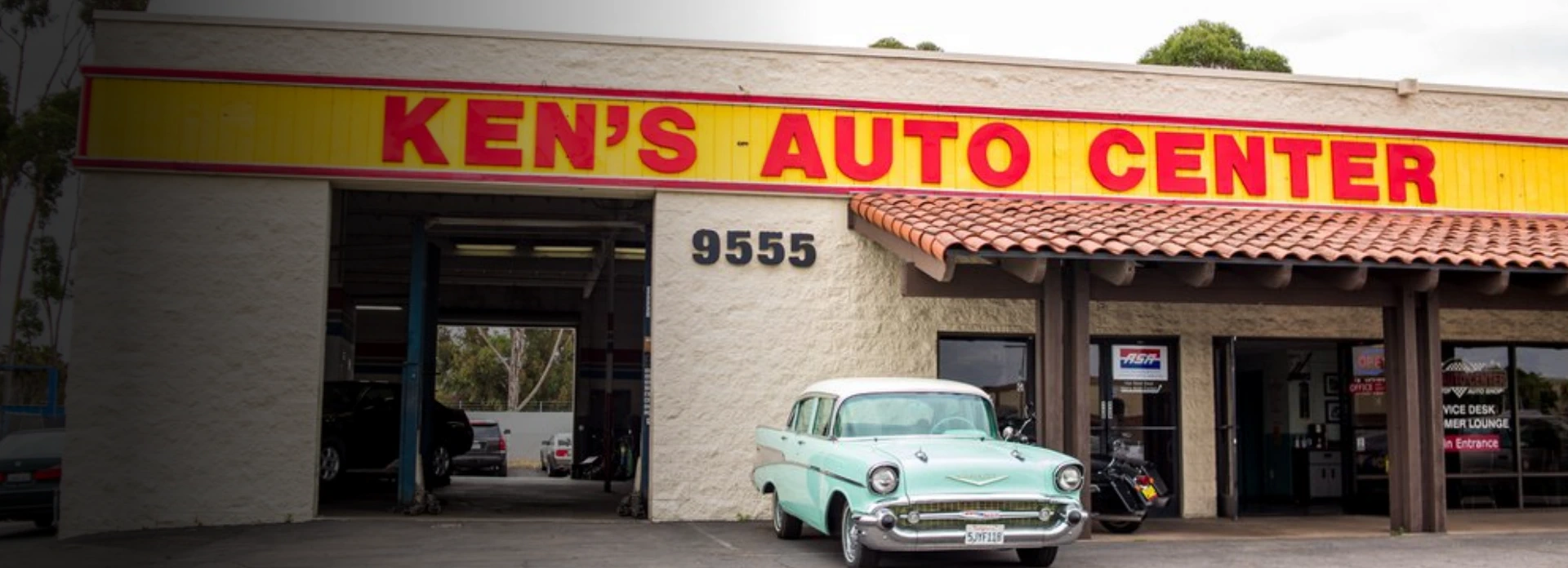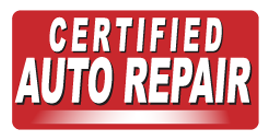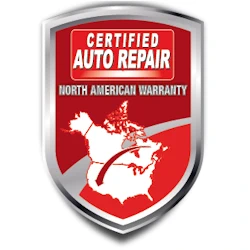
AUTONET TV
Archive for September 2025Keeping Your Cool (Coolant leak repair)Posted September 28, 2025 3:57 AMIf there’s one thing you should pay attention to with your vehicle, it’s the temperature gauge. It’s the one that may say C---H (that means “cold---hot”). Or maybe yours has a picture of a thermometer on it and a blue and red zone. If you see the needle heading farther to the “H” or red area, that means your vehicle’s engine is running hotter than it normally does. One of the most common causes of an engine running hot is a leak in your cooling system. Maybe you’ve seen puddles of coolant under your vehicle, or you’ve smelled the coolant, either inside or outside your vehicle (it has a sort of “sweet” or fruity smell). That’s your engine giving you a warning signal that it’s time to head over to your repair facility to find out what’s going on. Your vehicle’s coolant can leak for several reasons. You may have hoses that are deteriorating (heat and age take their toll). It’s possible the pump that circulates coolant has developed a problem (seals and bearings can fail from heat and wear). You may have something as simple as a bad radiator cap. Or your radiator or heater core may have holes in it. If your coolant is leaking out, this can cause serious damage to your engine if you just let it go. Your engine could get so hot that some of the metal parts start to warp. Sometimes, your coolant can start mixing in with your engine oil. That can result in a very expensive repair if it gets to that stage, so have it checked out before that happens. A technician will visually inspect your coolant system, including the reservoir tank, check hoses and fittings, test the water pump, and also may pressure test the radiator. When the problem or problems are found, they will replace the necessary parts and get you back on the road. When it comes to a coolant leak, finding the cause can be tricky. But it’s important to catch a cooling system issue in time—before your engine sustains more serious damage. Now, that’s pretty cool. Ken's Auto Center In the Red (Why a Vehicle Overheats)Posted September 21, 2025 3:59 AMHeat is one thing that can damage a vehicle, especially if a problem isn’t taken care of soon. Be on the lookout for signs that it’s getting too hot in some parts of your vehicle, starting with the most obvious one: the heat gauge/warning light on your instrument panel. When you see that heat gauge heading into the H zone or the warning light comes on, it’s often because your engine’s coolant is contaminated or running low. It’s important to let a pro look at it soon before serious damage is done, The radiator is another trouble spot that can cause overheating. It has a fan that needs to run properly, and it needs to be free of debris and dirt. Another radiator trouble spot is the core. When it gets clogged and coolant isn’t circulating as it should, an overheated engine can be the result. Have your cooling system checked regularly, including its thermostat. Your water pump is another part of the cooling system that can wear out, and when it’s not working right, your engine can get hot quickly. It should also be on the list of regularly checked engine components. Finally, your vehicle has several rubber belts and hoses that play vital roles in making sure the coolant is getting where it needs to be. It’s important to have those inspected by a technician before they fail and heat starts to build up. Your vehicle’s cooling system is complex and critical to its operation. Plus, it must be maintained so it does what a vehicle’s engineers designed it to do. When it comes to your vehicle, cool is cool, hot is not. Ken's Auto Center Full Stop (Brake Master Cylinder Replacement)Posted September 14, 2025 3:57 AMWhen you step on your brake pedal, you want to feel confident that your vehicle’s going to stop. If your brakes aren’t working right, it’s a risk to your safety and the safety of others on the road. After all, you’re driving a machine that weighs thousands of pounds, and you have to be able to stop that big machine quickly and with control, especially with some of the speeds you travel on the highways. The heart of your vehicle’s brake system is the master cylinder. When you apply the brakes, the master cylinder has pistons, springs, and brake fluid. That fluid amplifies and distributes the force of your foot through brake lines to calipers at all your wheels. Those calipers squeeze down on rotors or discs, which is what slows down and stops your vehicle. For safety, a master cylinder has two cylinders, one for two wheels, and the other for the remaining two wheels. That way, if there is a failure in one, you’ll still have braking power at half your wheels. The master cylinder doesn’t last forever, of course, and here are some signs it may have problems. When you press on the brake pedal, it feels soft and spongy. You may see the brake light on your instrument panel go on. You may notice brake fluid leaking, or it may be discolored. All of those are signs of brakes that need attention, and among the possible culprits is a master cylinder that has failed. When you bring it in for a technician to look at, they’ll check not only the master cylinder but also the rest of the components, such as pads, discs, shoes, brake lines, and hoses. If your master cylinder needs replacing, we’ll make sure all the other parts meet the manufacturer’s specs as well. Brakes are important. Really important. Full stop. Ken's Auto Center Cool Running (Water Pump)Posted September 7, 2025 4:08 AMYour vehicle is like you in a way. When it gets hot, it needs to be cooled down. And one of the key parts to keeping it cool is the water pump. Now, that's a bit of a misnomer. It IS a pump, but it's pumping coolant, not pure water. Cooling off your engine is vital since it builds up heat when it creates power by burning fuel. Your water pump acts as a way to recirculate that coolant. It goes through a series of tubes and hoses through the engine where it picks up heat, then is sent off to the radiator to get rid of that heat. Cooled off, the coolant is recycled through the water pump to start the journey again. The water pump works by taking mechanical power from the engine, usually from a belt. Obviously, that belt has to be in good condition and adjusted properly or else the water pump won't be able to do its job. Here are some things to look for that will signal problems with your water pump. If your heat gauge is erratic or showing a much higher than normal temperature, that could be a sign of trouble. Another is if you hear a whine under the hood. And if that gets louder when you go faster, get it checked right away. You may see steam coming out from under the hood or coolant may be leaking. These signs signal that it's time for you to have a technician check to see where the problem is. Some water pumps are powered by a timing belt. If your vehicle has that design and your timing belt is due for replacement, sometimes it's a good idea to replace the water pump too, even if it's working properly. That's because the labor to replace the timing belt can be expensive and it may be wise to proactively take care of the water pump while it's disassembled. Your service advisor will explain the options available and offer the best path to keeping your water pump doing its job. Your engine's life depends on it. Ken's Auto Center | ||
SearchArchiveFebruary 2025 (17)March 2025 (5) April 2025 (4) May 2025 (4) June 2025 (5) July 2025 (4) August 2025 (5) September 2025 (4) October 2025 (4) November 2025 (5) December 2025 (4) January 2026 (4) February 2026 (4) | CategoriesAlignment (2)Fuel Filter (1)Tires and Wheels (1)Service Intervals (1)Shocks and Struts (1)Headlamps (1)Windshield Wipers (1)Cabin Air Filter (1)Tire Rotation and Balancing (1)Oil Change (3)Check Engine Light (2)Differential Service (1)What Customers Should Know (11)Fluids (3)TPMS (2)Steering (3)Spark Plugs (1)Shocks & Struts (2)Alternator (3)Fuel Economy (2)Drive Train (1)Tires (2)Exhaust (1)Maintenance (1)Cooling System (2)Battery (3)Brake Service (1)Winter Prep (1)Engine Air Filter (1)Inspection (1)Transmission (1)Air Conditioning (2)Water Pump (2)Brakes (3)Fuel System (1)Battery Replacement (1)Suspension (1)Safe Driving (1) | |

OUR REVIEWS


Peter Suh, 02/17/2026This is my first time here, but the staff are friendly and my car is maintained very well, so I am very satisfied.










